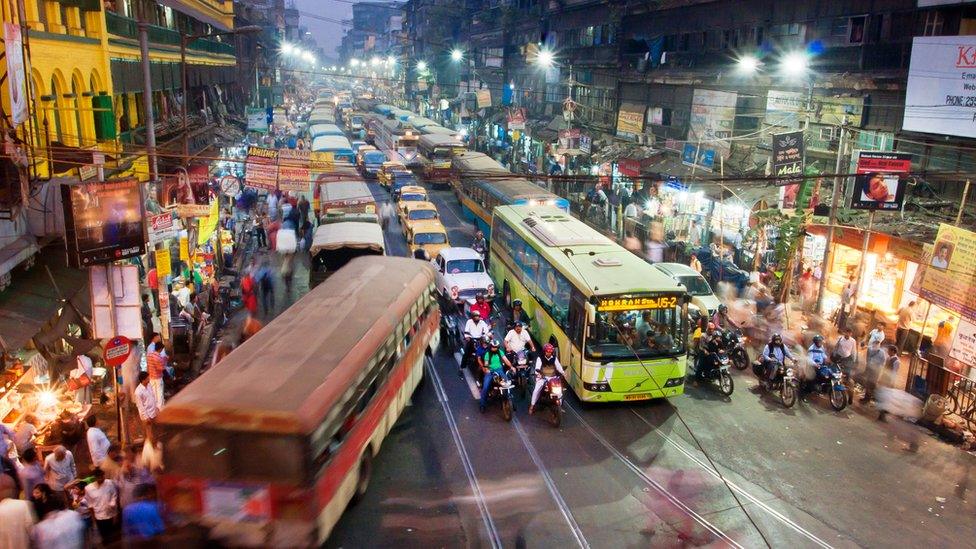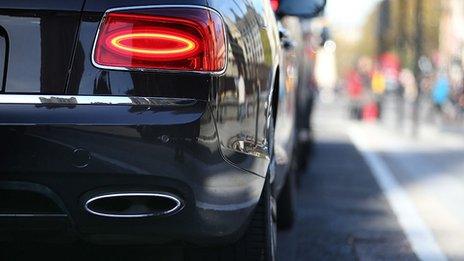India says no to driverless cars to protect jobs
- Published

India's traffic can be chaotic, which could make developing autonomous vehicles difficult
India is resisting the push towards driverless cars in order to protect jobs, its transport minister has said.
Nitin Gadkari said the government would "not allow any technology that takes away jobs".
He said India needed to recruit about 22,000 more commercial drivers and would be opening 100 training facilities to address the need.
India's road system and sometimes chaotic traffic makes it a difficult place to develop the technology.
The Hindustan Times , externalreports Mr Gadkari as saying: "We won't allow driverless cars in India. I am very clear on this.
"In a country where you have unemployment, you can't have a technology that ends up taking people's jobs."
Truly autonomous cars
However, he did not rule out the idea of a future change of policy.
"Maybe some years down the line we won't be able to ignore it, but as of now, we shouldn't allow it," he added.
Inderpreet Kaur, an analyst at research firm Ovum said: "The ministry has cited job losses as a reason behind banning autonomous cars in India, a bigger challenge would be to have ready infrastructure for these self-driving cars."
Google, BMW, Tesla, Audi and Uber are among businesses working hard to be the first to bring truly autonomous cars on to roads.
Self-drive technology trials, both for private cars and commercial vehicles, are being carried out around the world.
'They haven't changed'
Google has been testing self-drive cars in California and other states since 2012.
Paris began a three-month test of self-driving buses at the beginning of the year, and in the UK a consortium of companies plans to test driverless cars on motorways in 2019, while others are testing cars in off-road sites, including in London.
Commenting on the decision on Twitter, Indian congressman Gaurav Pandhi tweeted: "The BJP (Bharatiya Janata Party) said the same when Rajiv Gandhi talked about introducing computers to India. They haven't really changed."
- Published24 April 2017
